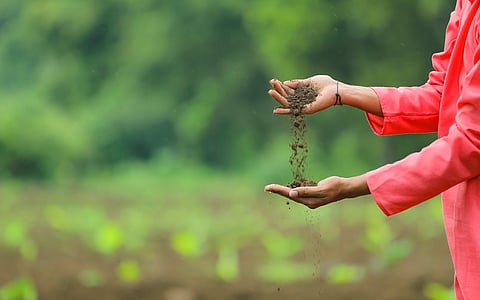Let soil live
It is just a start, but the message is loud and clear. At the International Union for Conservation of Nature (IUCN) World Conservation Congress in Abu Dhabi this October, “Motion 007: Soil Security Law” was presented for formal voting, aiming to give soil security the urgent legal recognition it requires. IUCN members approved the motion, calling for the development of “concepts and parameters for an international convention or a global legal instrument on soil security.”
Motion 007 asks the IUCN World Commission on Environmental Law to “explore options for international legally binding and non-binding instruments on soil security.” It defines soil security as “responsible management and preservation of soil to ensure its continued ability to perform vital functions, provide essential ecosystem and biophysical services, and protect against emerging threats to support life on Earth,” and outlines its five dimensions: capacity, condition, capital, connectivity and codification. These dimensions are intended to guide countries, and the world in general, to integrate soil security into policy and programmes and in shaping the potential global convention.
Soil is recognised as the “eighth” existential issue, alongside climate change, food and water scarcity, biodiversity preservation, energy sustainability and environmental maintenance and human well-being. According to the UN Convention to Combat Desertification (UNCCD),
16 million square kilometres of land worldwide will be severely degraded by 2050, if immediate mitigation actions are not taken up by countries. Its economic impact is enormous: an annual loss of $878 billion to the world economy. On land, the world has already breached the threshold: land degradation has begun to undermine the planet’s “capacity to sustain humanity”.
The world has adopted conventions and agreements on forest, water and climate. But soil has never received similar attention.
“Soil is the silent foundation of life, supporting food production, regulating water, storing carbon and sustaining biodiversity. Yet it remains the least protected part of nature,” says Julio Pachón Maldonado of the Australia-based think tank Aroura, which works on soil security and is leading a campaign to make it a global priority. “Soil is the foundation of every terrestrial ecosystem. Without secure soil, there is no food, no water security, no future,” says Julia Feeth, a soil scientist at the University of Sydney, Australia. “We can’t solve the climate or biodiversity crises without solving the soil crisis,” she adds. Soil health effects at least 12 of the 17 Sustainable Development Goals (SDGs), including climate action (SDG13), all of which are to be achieved by 2030. In particular, soil health is key to achieving SDG2: eradicating hunger.
Soil—and by extension, land—already features in existing conventions on climate, biodiversity, water and desertification. Many countries have active land degradation-related programmes that are being aligned with desertification and climate frameworks. Building on this foundation, Motion 007 would have guided countries to re-orient their plans to place soil protection at their core.
Drawing on the experience of other conventions or legally binding agreements, Motion 007 aims to accelerate the creation of a global convention or legal entity that will have the mandate for collective mitigation to face this eighth existential challenge. But agreeing on a global convention, like those on climate change and biodiversity, usually takes years, often decades, of complex negotiations. The same will apply to soil security. Hence, many suggest that as an interim arrangement soil security should be made into a protocol or annex to any of the three conventions on climate change, biodiversity or desertification. However, the formal introduction of Motion 007 on soil security marks a significant milestone, which soil scientist Quentin Styc describes as “a powerful act of unity for humanity to take (up).”


